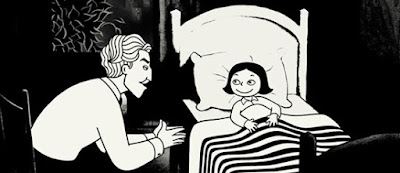Week 3 Persepolis Book Club
Hi
everyone,
I'm
glad that I have the opportunity of talking with you guys and hearing different
opinions about this book in the last two weeks. Although we didn't have time to
discuss this book in the class this week, I'm glad that we have this blog for
us to communicate with each other about this book. This book actually makes me
reflect a lot about my own background. Here's my response to this week's
questions.
The
theme of the novel and what it means to you?
The
themes of revolution and war are the two huge themes in this novel, pushing the
story going on. Under these two themes, Marjane further talks about the topics
of oppression from politics and religion, freedom, human rights, social
justice, gender, and other issues. Although this book is about the culture and
history of Iran, Marjane's story makes me reflect a lot on my country's history
during the reading. My country also experienced a long history of social
revolutions and wars. When I was reading the scenes that Marjane heard stories
from family friends, grandmother, and her uncle about the revolution and the
war, I would think of my childhood time that my grandfather told me the stories
he experienced and how the social revolution happened in my country negatively
influenced people' life. Some stories sounded absurd when the first time I
heard about, but those are the crimes that the results of social revolutions
and people hold great power did on people in the past. That was a depressing
history, but as the author said at the beginning, we should never forget when
we are living a peaceful life now because there were people in that history who
suffered, fought, and even sacrificed their lives for freedom and democracy.
The
theme of Marjane's self-identity formation also reminds me of my experience of
self-identity finding when I just moved to the U.S a few years ago. For
Marjane, she lost her identity at first. She tried to get rid of her past and
didn't want people to know where she originally came from. Similar to Marjane,
I was not willing to talk about my country at the beginning because I knew
there were many stereotypes and misunderstanding of my country and was afraid
these things would affect people's way of treating me. Finally, like what
Marjane did, I accept and embrace everything I had - "If I weren't
comfortable with myself, I would never be comfortable." Marjane's grandma
is a witty woman, what she said to Marjane is so true - "Always be true to
yourself."
This picture
reminds me of my childhood that my grandfather told me the stories he experienced and heard.

Comments
Post a Comment